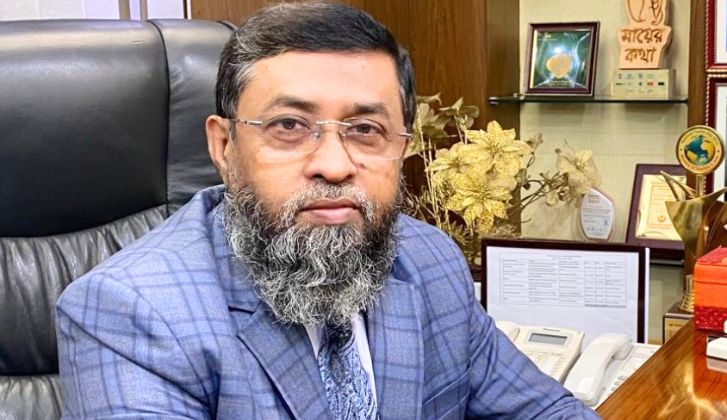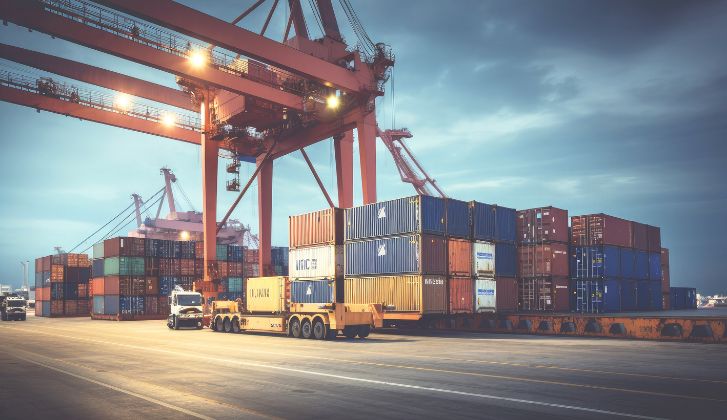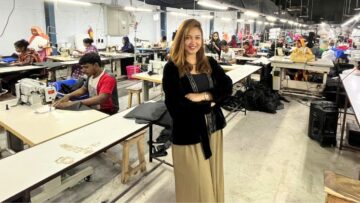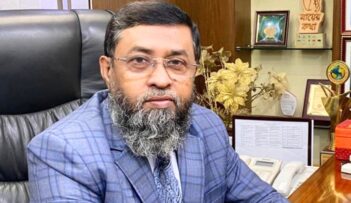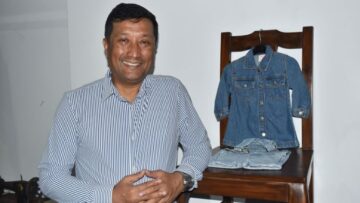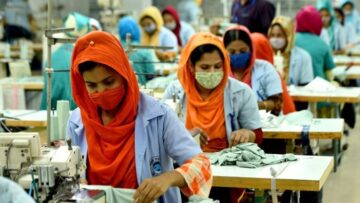Mohammad Hatem, the newly elected President of the Bangladesh Knitwear Manufacturers and Exporters Association (BKMEA), is a well-known figure of Bangladesh’s RMG industry. With nearly three decades of involvement in BKMEA and various leadership roles, Hatem brings in a wealth of knowledge and determination to his presidency.
In an exclusive discussion with Apparel Resources, he shared his strategies and plans to secure Bangladesh’s global leadership in apparel export.
Current scenario and priorities
Reflecting on BKMEA’s long and impressive journey, Mohammad Hatem approaches his new role with confidence, especially in this critical period when Bangladesh is undergoing significant changes.
“As President, my current priorities revolve around enhancing Bangladesh’s position as a leading apparel exporter and achieving our targets. We aim to tackle international challenges, particularly concerning our LDC graduation and are working diligently to secure GSP benefits in the American market,” he said.
He added that BKMEA is collectively advocating for a five-year postponement of LDC graduation, as it poses significant challenges in the current economic climate. To navigate this situation effectively, BKMEA is leveraging the strong relationships of Muhammad Yunus, Chief Adviser to the interim government, with major export countries. Additionally, efforts are underway to create favourable conditions for duty-free exports to the US and address evolving dynamics post-LDC graduation with the EU.
Optimism for Bangladesh in the global apparel market
Despite existing challenges within the country and the global geopolitical landscape, Hatem remains optimistic. Issues like the ongoing gas crisis affecting production and rising raw material costs are pressing, but he emphasised that BKMEA is actively communicating with the government to prioritise these concerns. “Similarly, engaging with the National Board of Revenue (NBR) is crucial for resolving banking and customs obstacles that are currently hindering our export growth. We are hopeful that steps will be taken in this regard,” he informed.
BKMEA is also holding discussions with various buyers to find a balanced approach during this adjustment period. The upcoming European Union Due Diligence Law presents further complexities, particularly regarding fair pricing from brands, which Hatem believes is essential for maintaining ethical practices in the industry.
He is optimistic that the current global landscape offers Bangladesh a unique opportunity. Hatem highlighted
Muhammad Yunus’ leadership role in enhancing Bangladesh’s international image, which the industry intends to leverage to attract more international buyers. He also praised local entrepreneurs for their bravery and strong work ethics, stating that they often outshine competitors from other countries. One of the key strengths of the industry is consistent and effective communication with existing buyers, ensuring Bangladeshi suppliers meet their needs promptly. This dedication and proactive approach will help forge stronger international partnerships and boost export potential. Strong sustainability practices, an attractive investment environment and a skilled workforce also contribute to this positive outlook.
“With China facing workforce challenges and a shift towards high-tech industries, there is increasing potential for Bangladesh to fill gaps in the apparel market. Our commitment to maintaining high compliance standards has earned us recognition as one of the safest sourcing countries, which is a cornerstone of our value proposition to international buyers. Moreover, with more than 226 green factories operating in the country, we stand out for our dedication to sustainability,” Hatem said.
He also pointed out that Bangladesh’s ample skilled workforce is a significant asset in attracting international buyers. Additionally, the country has established 100 economic zones that are ready for investment, with available plots and all necessary facilities. This sets a promising stage for international partnerships. “In the past year alone, we have seen a surge of interest from Chinese investors in apparel and allied industries, who are actively seeking opportunities by engaging with us on multiple levels,” he shared.
|
Areas for quick improvement
In light of recent worker demands and unrest, which led to the closure of a few factories, the issue of workers’ rights is again in the spotlight. Mohammad Hatem emphasised the importance of addressing misconceptions about worker rights in Bangladesh.
“We have established a framework for workers’ rights that is commendable compared to many other countries. While some may argue otherwise, most workers seek fair wages and job satisfaction and they generally feel optimistic about their employment conditions here. However, disruptions caused by external parties inciting unrest can mislead perceptions. We are committed to ensuring a stable work environment and encourage open communication among workers to mitigate these issues,” he said.
Hatem also stressed the need for workers to refrain from being influenced by instigators and focus on collaboration and progress within the industry. The success of the industry, he noted, depends on collective efforts, stability and mutual support. “As we navigate these challenges, we must uphold our strong relationships with buyers and international partners, emphasising the positive aspects of Bangladesh as a premier sourcing destination. Together, we can advance our industry to new heights,” he concluded.

